Best Hangover Food 2024: What To Eat & Avoid When Hungover
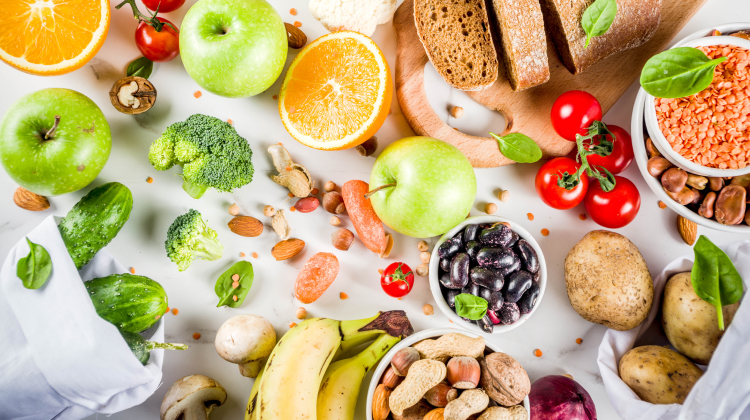
“These violent delights have violent ends,” as Shakespeare said. A little partying, if not very often, never harms anybody. Still, you may feel very sick and tired the “morning after,” with a bad headache and nausea.
Excessive alcohol consumption can disrupt your metabolism and physiologic function for a while. But you can help your body, by choosing the wisest foods to cure your hangover. In this article, you can find out how to deal with a hangover after an enjoyable night. If you wonder about the best food for the hangover, keep reading.
6 Best Foods For Hangover
- Water, mineral water, and sports drinks
- Fruits and vegetables
- Ginger tea
- Good-quality proteins
- Unsaturated fats
- Complex carbohydrates
What Happens In Your Body While You Are Hungover?
Before we discuss the best and worst foods for the hangover, you should know what body changes happen during the hangover.
You may have nausea, headache, attention loss, and tiredness. If your alcohol abuse[1] is chronic, you may even feel anxiety, high emotional reactions, or cognitive impairments that affect your productivity and everyday tasks.
The severity and the types of hangover outcomes[2] may vary according to your sex, age, body weight, and alcohol consumption habits. The foods in your diet may help to get rid of these outcomes. Primarily nausea is easily controlled with the diet. Also, with correct food choices, you can also address tiredness.
The reason that alcohol leads to these side effects is mainly due to the metabolic steps of alcohol metabolism. First of all, alcohol consumption leads to dehydration which means water and electrolyte loss in the body. It is important to drink at least the same amount of water while drinking alcohol; and you will lose a lot of electrolytes and water with vomiting, too.
Also, the inflammatory biomarkers[3] elevate in the blood with alcohol consumption. This elevation[4] associates with hangover outcomes, such as nausea, vomiting, confusion, inattentiveness, fatigue, or depressive feelings.
Furthermore, the increase in oxidative stress markers[5] following alcohol intake in the blood correlates to the hangover symptoms the next day. For this reason, consuming some antioxidant-rich foods during alcohol consumption can reduce the hangover symptoms by interfering with the increase in the inflammatory response of alcohol. During alcohol intake, it would be beneficial to consume appetizers with high vegetable, fruit, olive oil, and omega-3 content, such as Mediterranean diet appetizers.
Both the oxidative stress that alcohol causes and alcohol itself negatively affect body weight, since it is a high-calorie beverage. In addition, studies show that alcohol makes it difficult to burn fat for 36 hours due to its negative effects on mitochondria (which provide all the energy control of the cell), carbohydrate metabolism, sleep and exercise performance. You should help your body by choosing the right foods to boost your metabolism again.
Here are foods that help with hangovers:
Best Foods For Hangover
Alcohol is a metabolically active product that causes several changes in your body. These can be various unwanted psychological and physiological outcomes, occurring nearly 10 hours[6] after the alcohol in your blood has peaked.
Then the morning has you waking up thinking about what to eat for a hangover, all the worse with the sour taste in your mouth, headache, and nausea.
Water, Mineral Water, And Sports Drinks
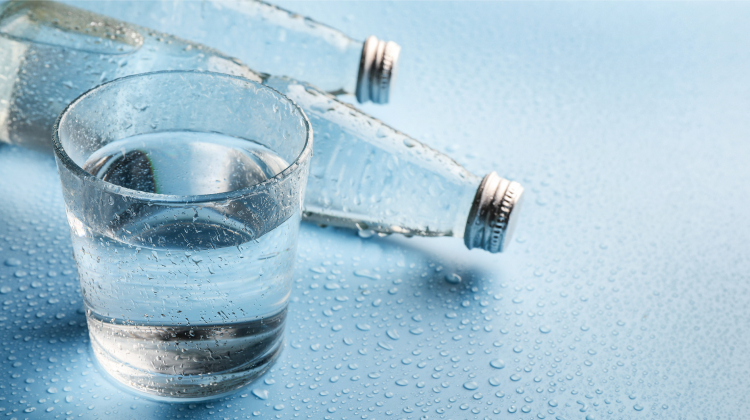
After a night of drinking too much, the first thing you feel in your body is likely to be thirst due to the water and electrolyte loss[7] of your body, called “dehydration.”
The best thing you can do is, first, rehydrate by using the best hangover cure drinks, e.g., water, mineral water, or sports drinks.
Plain water and mineral (spring) water[8] are natural rehydration remedies that you can use to replace the body fluids you lose with alcohol.
The tiredness you feel a day after high alcohol consumption is mainly due to dehydration[9], as each of our cells, from muscles to nerves, need a balance of water and electrolytes to maintain optimum functions.
Sports drinks[10] are designed to provide the water and electrolytes such as sodium, potassium, and magnesium that athletes lose with sweating. They’re included here since you may lose similar electrolytes during vomiting.
Furthermore, for alcohol metabolism, a lot of urine is produced by the kidneys for the detoxification process. A huge amount of water leaves the body through urine, which can worsen dehydration if fluids are not replaced.
Fruits And Vegetables
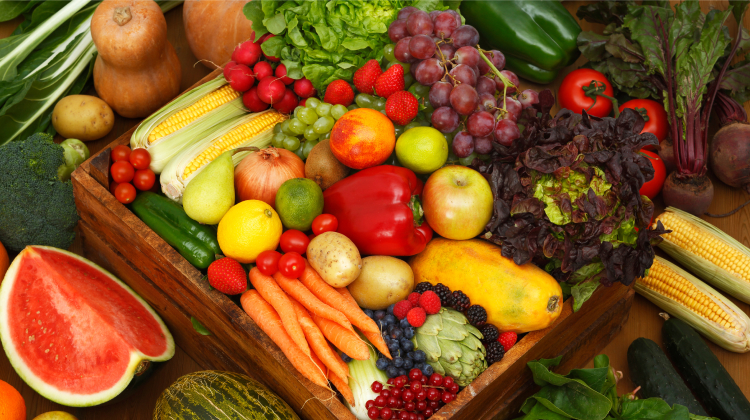
As mentioned above, hangover outcomes are closely related to Inflammation in the body. This is why fruits and veggies[11] work. The high antioxidant content of fruits and veggies helps reduce Inflammation in the body. The harmful metabolites[12] of alcohol can be reduced or made less toxic by the antioxidant properties of these foods.
They can be prepared as smoothies for easier consumption if nauseated. You can use leafy greens or natural purple/red-colored foods to produce high-antioxidant-containing smoothies. You can start your day with orange juice or tomato juice because of their high content of lycopene and carotene to feel better in the morning.
Ginger Tea
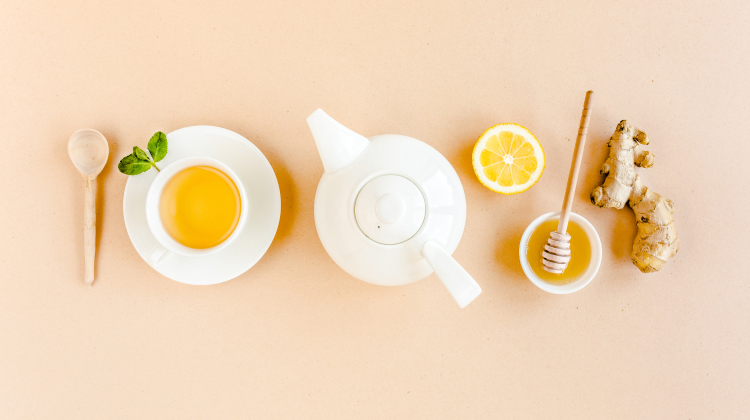
Nausea is the most common one among hangover symptoms. Studies have shown that dried ginger or ginger tea is the best hangover food for an upset stomach to reduce nausea. Ginger affects[13] the receptors that initiate certain neural impulses.
In this way, it accelerates gastric emptying and stimulates the contractions necessary for passage through the stomach. It has been shown to have therapeutic effects on nausea and vomiting, especially during pregnancy or chemotherapy. Therefore, it may also work for alcohol-induced nausea and vomiting.
Good-Quality Proteins
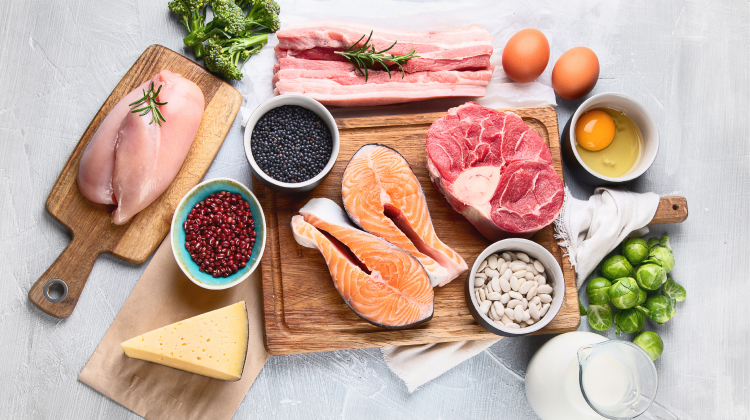
The main effect of alcohol is obviously on the brain[14]. Amino acids are the essential structural components of many cognitive biochemical reactions. The neurotransmitter, specific molecules that are responsible for the connection between nerves, muscles, and cells in the rest of the body depend on amino acid metabolism in the body.
Alcohol consumption leads to reductions[15] in several neurotransmitters, which are responsible for mood regulation or cognitive function. After a high amount of alcohol consumption, you can regain your mental function by getting the essential neurotransmitters back up; and you can help your body do that by consuming high-quality protein.
Eggs for breakfast, a warm chicken noodle soup for lunch, or salmon grilled for dinner can be good hangover meals to increase high-quality protein intake. Because of the upset stomach, white meats would be a better choice than red meat due to its higher acidity and difficulty in digesting.
Unsaturated Fats
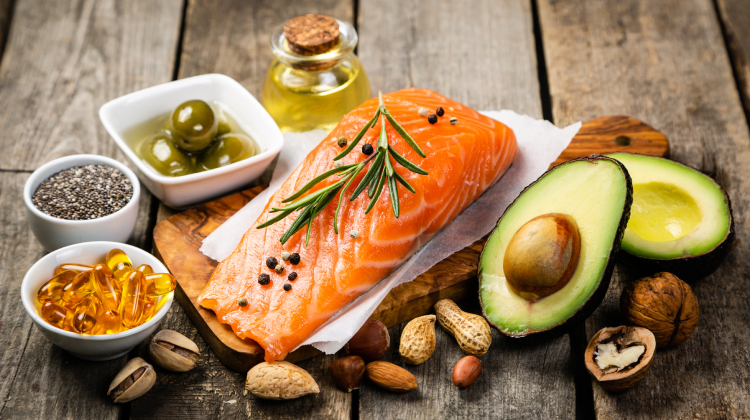
Unsaturated fats such as omega-3[16] and oleic acid[17] are a component of the cellular wall. Therefore it is important to consume fish oil and nuts (to get omega-3s) and olive oil (to get oleic acid) in your diet to protect your cells against alcohol damage.
Further, these are liver-friendly oils, as alcohol mainly damages the liver due to its metabolism there. Liver efforts struggle more than usual to detoxify your body after alcohol consumption.
Complex Carbohydrates
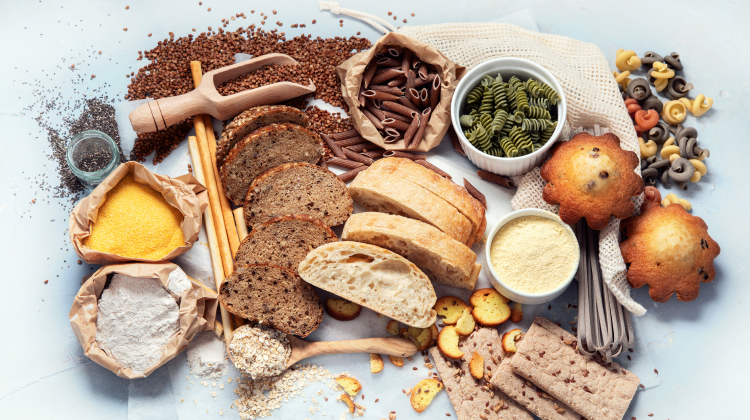
Complex carbohydrates are very useful foods in hangovers, both to meet energy needs in a nutritious way and as a rich dietary source of B vitamins[18]. B vitamins are a group of vitamins responsible for energy metabolism. Complex carbohydrates also help maintain stable blood sugar to address tiredness.
In addition, B vitamins are cofactors needed to produce neurotransmitters. Sandwiches prepared with whole grain bread and salads prepared with quinoa or bulgur are sources of B vitamins and healthy carbohydrates. A whole-grain toast can be a good option in the morning after you drink too much alcohol. (Skip the butter!)
What Should You Not Eat When Hungover?
High-Fat Foods
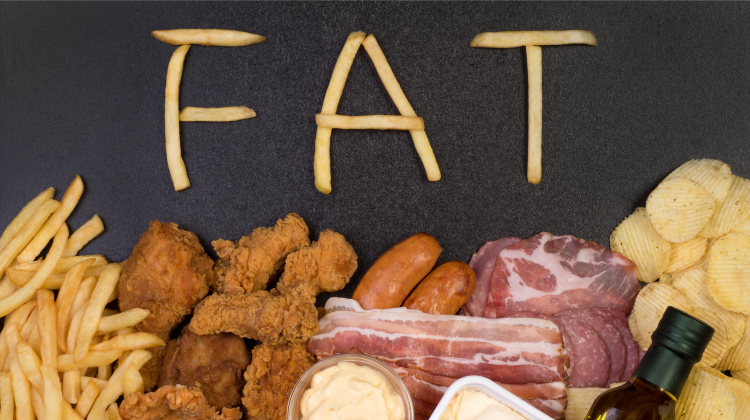
Fatty foods can make an upset stomach worse. For this reason, you shouldn’t consume foods such as high-fat fries, fatty meat, greasy food, and high-fat bakery products during the hangover.
Processed Foods

A higher level of inflammatory response occurs in the body due to high alcohol consumption. This inflammatory response should be reduced to recover from hangover symptoms. However, processed foods are the worst, as they cause further damage to the body by increasing inflammatory responses, too.
Coffee

Coffee, by tradition, is often used to sober you up and make you feel more energetic after high alcohol consumption. However, this is a bad habit. First of all, coffee is a strong diuretic[19] that increases urine volume, causing more fluid loss. As we explained above, alcohol is a serious cause of dehydration. Therefore, coffee can worsen your body’s dehydration.
Also, caffeine is a substance that triggers nausea and vomiting, so it can increase these hangover symptoms.
Foods Hard To Digest
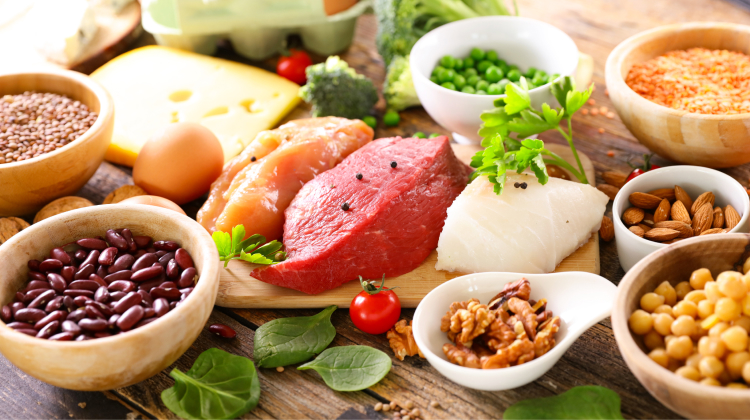
Some foods are naturally difficult to digest. For example, red meat is one of them. Although it is beneficial with its high protein content, it might be bad for an upset stomach.
Similarly, legumes are one of the rich and useful sources of carbohydrates in terms of content; but if you have nausea, they will negatively affect your digestive system.
The Bottom Line
It will be very helpful if you know what to eat when hungover because dietary strategies are closely related to symptoms such as nausea, cognitive function, depressive feelings, tiredness, reduced immunity, and mostly dehydration. Alcohol is a stress factor for the body. Therefore, it causes Inflammation by activating many immune responses. This Inflammation is associated with many symptoms caused by alcohol.
These harmful effects of alcohol can be balanced with foods such as fruits and vegetables which have antioxidant content. In addition, healthy unsaturated fats are preferred so that oxidative damage does not damage cell integrity. The decreased neurotransmitter levels, which cause negative effects on brain functions, can increase again with easy-to-digest and quality protein sources such as eggs, fish, and chicken.
Although drinking coffee the day after alcohol consumption is typical, its consumption is incorrect because caffeine increases dehydration and can re-trigger nausea and vomiting. Consuming herbal teas such as ginger tea helps to mitigate the feeling of nausea and does not cause a diuretic effect as much as coffee. You should not forget that water loss should be replaced with only water or rehydration products, not with other beverages.
+ 19 sources
Health Canal avoids using tertiary references. We have strict sourcing guidelines and rely on peer-reviewed studies, academic researches from medical associations and institutions. To ensure the accuracy of articles in Health Canal, you can read more about the editorial process here
- Vinader-Caerols C;Monleón S;Parra A (2014). Physiological and psychological effects of a high dose of alcohol in young men and women. Adicciones, [online] 26(3). Available at: https://pubmed.ncbi.nlm.nih.gov/25314039/
- van Schrojenstein Lantman, M., Mackus, M., van de Loo, A.J.A.E. and Verster, J.C. (2017). The impact of alcohol hangover symptoms on cognitive and physical functioning, and mood. Human Psychopharmacology: Clinical and Experimental, [online] 32(5), p.e2623. doi:10.1002/hup.2623.
- van de Loo, A.J., Raasveld, S.J., Hogewoning, A., Zeeuw, R. de, Bosma, E.R., Bouwmeester, N.H., Lukkes, M., Knipping, K., Mackus, M., Kraneveld, A.D., Brookhuis, K.A., Garssen, J., Scholey, A. and Verster, J.C. (2021). Immune Responses after Heavy Alcohol Consumption: Cytokine Concentrations in Hangover-Sensitive and Hangover-Resistant Drinkers. Healthcare, [online] 9(4), p.395. doi:10.3390/healthcare9040395.
- Harrison, N.A., Brydon, L., Walker, C., Gray, M.A., Steptoe, A. and Critchley, H.D. (2009). Inflammation Causes Mood Changes Through Alterations in Subgenual Cingulate Activity and Mesolimbic Connectivity. Biological Psychiatry, [online] 66(5), pp.407–414. doi:10.1016/j.biopsych.2009.03.015.
- Mackus, M., Loo, A.J. van de, Garssen, J., Kraneveld, A.D., Scholey, A. and Verster, J.C. (2020). The Role of Alcohol Metabolism in the Pathology of Alcohol Hangover. Journal of Clinical Medicine, [online] 9(11), p.3421. doi:10.3390/jcm9113421.
- Palmer, E., Tyacke, R., Sastre, M., Lingford-Hughes, A., Nutt, D. and Ward, R.J. (2019). Alcohol Hangover: Underlying Biochemical, Inflammatory and Neurochemical Mechanisms. Alcohol and Alcoholism, 54(3), pp.196–203. doi:10.1093/alcalc/agz016.
- Irwin, C., Leveritt, M., Shum, D. and Desbrow, B. (2013). The effects of dehydration, moderate alcohol consumption, and rehydration on cognitive functions. Alcohol, [online] 47(3), pp.203–213. doi:10.1016/j.alcohol.2012.12.016.
- Chycki, J., Zając, T., Maszczyk, A. and Kurylas, A. (2017). The effect of mineral-based alkaline water on hydration status and the metabolic response to short-term anaerobic exercise. Biology of Sport, [online] 3, pp.255–261. doi:10.5114/biolsport.2017.66003.
- Cheuvront, S.N. and Kenefick, R.W. (2014). Dehydration: Physiology, Assessment, and Performance Effects. Comprehensive Physiology, [online] pp.257–285. doi:10.1002/cphy.c130017.
- Rowlands, D.S., Kopetschny, B.H. and Badenhorst, C.E. (2021). The Hydrating Effects of Hypertonic, Isotonic and Hypotonic Sports Drinks and Waters on Central Hydration During Continuous Exercise: A Systematic Meta-Analysis and Perspective. Sports Medicine, [online] 52(2), pp.349–375. doi:10.1007/s40279-021-01558-y.
- Slavin, J.L. and Lloyd, B. (2012). Health Benefits of Fruits and Vegetables. Advances in Nutrition, [online] 3(4), pp.506–516. doi:10.3945/an.112.002154.
- Petrella, C., Carito, V., Carere, C., Ferraguti, G., Ciafrè, S., Natella, F., Bello, C., Greco, A., Ralli, M., Mancinelli, R., Messina, M.P., Fiore, M. and Ceccanti, M. (2020). Oxidative stress inhibition by resveratrol in alcohol-dependent mice. Nutrition, [online] 79-80, p.110783. doi:10.1016/j.nut.2020.110783.
- European Review. (2015). Can nausea and vomiting be treated with ginger extract? [online] Available at: https://www.europeanreview.org/article/8750
- Mohammed Abul Kashem, Šerý, O., Pow, D.V., Rowlands, B.D., Rae, C.D. and Balcar, V.J. (2022). Actions of Alcohol in Brain: Genetics, Metabolomics, GABA Receptors, Proteomics and Glutamate Transporter GLAST/EAAT1. Current Molecular Pharmacology, [online] 14(2), pp.138–149. Available at: https://www.eurekaselect.com/article/106099
- Ardis, T., Cahir, M., Elliott, J., Bell, R., Reynolds, G. and Cooper, S. (2008). Effect of acute tryptophan depletion on noradrenaline and dopamine in the rat brain. Journal of Psychopharmacology, [online] 23(1), pp.51–55. doi:10.1177/0269881108089597.
- Ayee, M.A.A., Bunker, B.C. and De Groot, J.L. (2020). Membrane modulatory effects of omega-3 fatty acids: Analysis of molecular level interactions. Membrane Biomechanics, [online] pp.57–81. doi:10.1016/bs.ctm.2020.08.001.
- Lopez, S., Bermudez, B., Montserrat-de la Paz, S., Jaramillo, S., Varela, L.M., Ortega-Gomez, A., Abia, R. and Muriana, F.J.G. (2014). Membrane composition and dynamics: A target of bioactive virgin olive oil constituents. Biochimica et Biophysica Acta (BBA) – Biomembranes, [online] 1838(6), pp.1638–1656. doi:10.1016/j.bbamem.2014.01.007.
- Hanna, M., Jaqua, E., Nguyen, V. and Clay, J. (2022). B Vitamins: Functions and Uses in Medicine. The Permanente Journal, [online] 26(2), pp.89–97. doi:10.7812/tpp/21.204.
- Zhang, Y., Coca, A., Casa, D.J., Antonio, J., Green, J.M. and Bishop, P.A. (2015). Caffeine and diuresis during rest and exercise: A meta-analysis. Journal of Science and Medicine in Sport, [online] 18(5), pp.569–574. doi:10.1016/j.jsams.2014.07.017.



